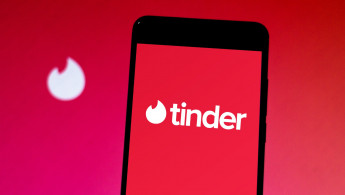Follow us on Facebook, Twitter and Instagram to stay connected
Rights groups accuse Pakistan of censorship after Tinder and Grindr banned over ‘immoral’ content
Pakistan has blocked access to the popular dating apps, prompting outrage.
3 min read
Tinder, Grindr and three other dating apps were banned [Getty]
Five apps - including the popular dating apps Tinder and Grindr - have been banned in Pakistan over what the authorities call "immoral content".
Tinder, Grindr - for gay, bi, trans and queer people - Tagged, Skout and SayHi have all been blocked in Pakistan after the government issued notices to the apps to remove the dating segment of the services.
In many cases, the dating element of the apps are integral to its function.
The Pakistan Telecommunication Authority (PTA), the country's internet regulator, claimed that the companies had ignored Islamabad's request and as a result the government forcibly brought the platforms into a "moral and legal realm", it told BBC Urdu.
Homosexuality and extramarital relationships are against the law in the country.
Last week, the same body told YouTube to block access in Pakistan to videos deemed "objectionable".
In the past, video app TikTok had been criticised over explicit content.
Rights groups are worried that such actions essentially curb free speech in Pakistan and veers the Muslim-majority country further into moral policing tactics.
"If adults choose to be on an app, it is not for the state to dictate whether they should use it or not," said Shahzad Ahmad, director of Bytes For All, a Pakistani digital rights group. He described the ban as "completely ridiculous" and an attempt at "moral policing."
|
"These latest blocks reveal that the government is ramping up its efforts to control the flow of ideas on the internet," Ray Walsh, digital privacy expert at ProPrivacy, said.
"Pakistani citizens will be used to oppressive levels of censorship to prevent citizens from accessing LGBTQ content, nudity, and anything else considered immoral, and due to the fact that extramarital affairs are also illegal, dating sites are now being targeted as the government feels these could be fuelled by online dating apps."
People online also criticised the decision.
"The majority of students who are coming from rural areas are missing out on their online education due to abysmal internet services," a Twitter user wrote.
"Instead of making the internet cheap and accessible to everyone, IT ministers are busy banning apps like Tinder in Pakistan. PRIORITIES"
And others used humour to condemn the Pakistani authorities.
"What elite married men will do now without Tinder in Pakistan? khair elite hain they will find other ways to cheat on their wives," tweeted Nighat Dad, lawyer and Pakistani women’s rights activist.
"Can't believe they banned tinder in Pakistan. How am I going to go on dates with men who tell me they thought I was a lesbian because I’m too confident to be straight now?" another wrote.
Over the last 12 months in Pakistan, Tinder was downloaded 44,000 times, Grindr, Tagged and SayHi some 300,000 times each and Skout, 100,000 times.





 Follow the Middle East's top stories in English at The New Arab on Google News
Follow the Middle East's top stories in English at The New Arab on Google News
![The UAE is widely suspected of arming the RSF militia [Getty]](/sites/default/files/styles/image_330x185/public/2024-11/GettyImages-472529908.jpg?h=69f2b9d0&itok=Yauw3YTG)
![Netanyahu furiously denounced the ICC [Getty]](/sites/default/files/styles/image_330x185/public/2024-11/GettyImages-2169352575.jpg?h=199d8c1f&itok=-vRiruf5)
![Both Hamas and the Palestinian Authority welcomed the ICC arrest warrants [Getty]](/sites/default/files/styles/image_330x185/public/2024-11/GettyImages-2178351173.jpg?h=199d8c1f&itok=TV858iVg)